- Home
- Neil Plakcy
The Outhouse Gang Page 2
The Outhouse Gang Read online
Page 2
“I’ll lock up the back,” Susanna said. “You close out the cash register.”
Once the Ritters closed the hardware store, people clustered on the porch. There were even a pair of twin boys in the big maple tree by the sidewalk.
A couple of Bruce’s friends showed up and they staked out an area of the porch for themselves. Chuck remembered when he was a kid and he used to do the same thing. His father gave them all nickels for ice cream. Chuck dug into his wallet.
Hal Ritter rode on the VFW float, and tossed miniature Tootsie Rolls at the kids on the sidelines. The parade stalled for a minute, with the float right out in front of the store. “What are you doing out here?” he called down to Chuck, who was standing on the sidewalk. “You ought to be inside the store!”
“Store’s closed, Dad,” Chuck said. “Happy Independence Day!”
“Who do you think you are?” Hal asked, as the parade started up again and the float moved on down Main Street. Chuck watched his father glide away, continuing to throw the Tootsie Rolls out in small handfuls, with a fixed smile on his face.
Nick and Carol Miller drove past in the antique Ford, with their son Fred in the rumble seat. Nick was wearing a yellow vest and a straw boater, and Carol was wearing a white dress with a broad-brimmed picture hat. Only Fred looked out of place, in his white t-shirt, his blond crewcut glinting in the sun.
Dressed in blue cutaway coats and black breeches, with white wigs and three-cornered caps, Sandy Lord and Charley Woodruff stood on opposite sides of a float sponsored by the bank. The centerpiece was a flat Durham boat of the kind used in the original crossing. Every few feet Sandy and Charley turned to each other and shook hands over the boat.
Lisa’s Brownie troop followed the Pennsbury High School marching band. The troop leader was having a hard time keeping all the girls in line; they kept falling back to wave at their families or running up to talk to a girlfriend. When they passed the Ritters, the signs read, “Ask not country what what your can do for you, ask you for can do your country.” Lisa waved at them.
* * *
Hal Ritter said nothing to Chuck the next day, but he started dropping in on the store more often, as if he was afraid Chuck might close the place up and run off. And indeed, Chuck’s discontent increased as the summer waned. At night he’d sit out on the back porch and daydream about foreign places he’d seen on public television.
One night late in August he and Susanna went to a slide presentation to the men’s club at St. Jude’s by a deacon and his wife, about their bicycle trip through Italy and France. “Wouldn’t that be nice to do someday?” Susanna asked. “When the kids are older, and it’s just you and me?”
Chuck didn’t hear her. He was daydreaming about cycling through a vineyard in Bordeaux, or past one of those pebbly beaches on the French Riviera where the women sunbathed without their tops on. In his daydream he wasn’t old and tired like the deacon, but still young and able to have a good time. The vision seemed so close to him, it was as if he was leaving the next day. And he was on his own, free of all responsibility.
* * *
The Stock Club met regularly, every two weeks, throughout the rest of the summer and the fall. The leaves changed color and fell to the ground, and the Canada geese that summered on the mill pond migrated south, but Chuck’s discontent remained. By the end of October, it was like a tumor growing inside him, a lump he could almost feel, a dizziness that came on him without warning.
Hal Ritter always went over the books on the last day of the month. No matter how good things had been, he always grumbled about rising costs and dropping profits. Chuck decided to ask for a raise before his father had the current numbers fresh in his head, when Chuck might have an advantage. On the thirtieth of October, when his father came into the store late in the afternoon, he told the clerk to watch the register and steered his father into the back office.
“Look, Dad, I need a raise,” he said. “The store’s doing well. We can afford it. Bruce is going to need braces on his teeth, and Susanna’s got her eye on a new dishwasher, and Jeez, I got bills coming out my ears.”
“Can’t do it,” Hal said. “You need to learn to budget, boy. Why, I raised you on less than half of what I pay you now.”
“Things were cheaper then,” Chuck said. “Dad, I need more money.”
“I’ll go over the books tomorrow,” Hal said. “But I can tell you already there won’t be any fat in them.” He nodded his head back toward the store. “Now go on, get back in there. Get to work.”
Chuck stalked back out to the store. He spent the rest of the afternoon imagining what would happen if he quit, right in front of his father, and walked out, throwing down his apron on the counter. That would make him sorry, he thought. That would make him come around. But by the time he went home at six o’clock, he knew he would not quit, that he would stay behind the counter, under his father’s thumb, until he mustered up the courage to do something else.
That night the Stock Club met at the Ritters’ house. After they discussed their stock picks, Susanna served a pink, creamy Jell-O mold she had made with vanilla ice cream and formed in a copper cornucopia pan that normally hung on the kitchen wall.
Chuck was still in a bad mood. He felt himself tensing up for a fight. “Anybody want a beer?” he asked, standing up from the table.
“Chuck. Not with Jell-O,” Susanna said.
“Why not? Why the hell not?”
“I’ll take one,” Paul Warner said quickly.
“Me, too.” Sandy stood up across from Chuck. “Come on, let’s go out in the yard.”
Chuck cracked open a six-pack and brought it outside, with a Coke for Harry Mosca, who was a Christian teetotaler.
Chuck sat in the swing set he’d built for Bruce and Lisa. The other guys sat on the lawn furniture or leaned up against trees. “You know what this club is?” he asked. “It’s boring, that’s what it is. Goddamned boring.”
“It’s not exactly a subject that lends itself to excitement and intrigue,” Sandy said.
“Life is what you make it,” Paul said. “If you think something’s dull, liven it up.”
“All right,” Chuck said. He stood up. “Then I say we take some steps to liven up our dull, boring lives. I mean, Christ, I wake up in the morning, eat the same damn food for breakfast every day, spend the entire goddamned day locked up in my father’s hardware store, my father’s store, he reminds me every day. Not even my store. Not even half my store, or one quarter my store. And what have I got to show for it at the end of the day, the end of the week, the end of the month? A stack of bills.”
“Amen, brother,” said Charley Woodruff, who had a new baby and had to live with his in-laws until his wife could go back to work.
“Everybody know what tonight is?” Chuck asked.
“Tomorrow’s Halloween,” Harry Mosca said.
“But tonight,” Chuck said. He started to pace back and forth, stabbing the air for emphasis. “Tonight is Mischief Night. I say we go out and make a little mischief of our own.”
There was a murmur among the group. Nothing actually said, but a general feeling of agreement so strong it drew sound out of the air.
“What did you have in mind?” Paul asked.
“Nothing all that terrible,” Chuck said. His voice grew softer, more conspiratorial. The men drew in close around him. “Last week, I delivered some lumber to a farm out past the state park,” he said. “There was an old wooden outhouse out back. I made a joke about it to the farmer, told him to watch out for splinters. He said nobody’d used the thing for donkey’s years.”
“So? Tom Laroquette asked.
“So what would you say if we picked up that old outhouse and did something with it. Dropped it in town, say?”
“It’s theft,” Harry said. He was the oldest one of them, as well as the most moral and righteous.
“Call it borrowing,” Chuck said. “We just borrow the outhouse, and leave it in front of the town hall. It’s
not like we’re taking it away permanently.”
“What if we get caught?” Harry persisted.
Chuck shrugged. “I don’t know,” he said. “But my father always says, if you worry everything to death you never do anything.”
“I don’t know about you all,” Sandy said slowly, “but I’ve been a good boy for too long. My daddy wanted me to go to law school, and so I became a lawyer. I’m Helene’s husband and Danny and Tommy’s daddy. And even though I love them all, I’m damn tired of being all that for everybody else. I’m in, Chuck.”
He walked over and put his arm around Chuck’s shoulder.
Paul drained the last of his beer and crushed the can in his hand. “Me, too,” he said.
They all agreed, even Harry. “But we don’t tell anybody,” Chuck said. “Not our wives, nobody. This is just between us.”
“I love it,” Tom said. “It’s like being back at the frat house.”
They went back inside, and told their wives they were all going out for a ride in Chuck’s pickup, that they’d see them all home afterwards. “Where are you going?” Elaine Warner asked.
Paul kissed his wife on the lips and said, “I love you, sweetheart. I’ll see you later.”
Harry rode in the cab of the pickup with Chuck, and the other guys climbed into the bed. Paul and Sandy stood behind the cab, holding onto the roof, as Chuck roared out of the development and down the winding country roads into the farmlands north of town. The wind roared and whistled around them and they felt as giddy as school kids on a field trip.
They stopped just downhill from the farm. Chuck and Charley Woodruff, who was a carpenter, made a quick survey to see how big the outhouse was, how rooted in its foundations, how sturdy.
Chuck was the organizing maestro. He had all the tools in his truck, as well as a couple of lengths of rope. He delegated responsibility for toppling, roping, hauling, and levering into the truck bed. “Paul, pick up on your end,” he said. “Tom, you give him a hand down there. Easy, Charley, not so fast. Here, let me get a piece of that.” He leaned down and grabbed at the side of the outhouse. It was strong and well-made, and he could feel the nail heads under his fingertips, how they’d been driven flush into the wood.
It took them nearly an hour to get the outhouse into the truck. When it was finally in place, roped down and buttressed with rags and spare pieces of lumber, he stood back and looked at it. He nodded his head. “Looks pretty good, boys.”
Everyone piled back in for the ride back to town. There were a few bathroom jokes made, and Harry Mosca made a show of closing off his nostrils with his fingers. “Phew,” he said. “You boys better watch out your wives don’t get any whiff of that.”
It was after eleven by then and the town was quiet. Most businesses closed at six, and the people who lived downtown were generally older folks whose lights were out by nine. When they rounded the curve of Main Street, just before coming to the center of town, they flushed a gang of teenagers, who scattered as their headlights lit the darkened street. The kids left a trail of toilet paper and soapy windows behind them.
As Chuck pulled his truck around behind the town hall, they heard the siren of a police car. The men jumped out and stood in the shadows next to the five and dime store. They watched the policeman pull up in front of some soapy windows and then prowl around the sides of the building with his flashlight. Chuck realized he was holding his breath, and tried not to.
The radio in the police car crackled and the policeman returned to it. “On my way,” they heard him say.
He got into the car and turned the flashing lights and the siren on. Once he had driven off, the men hurriedly unloaded the outhouse and carried it around to the front of the town hall. They stood it up in front of the main entrance, and it tilted badly to one side. Charley quickly shimmed up the side with a piece of lumber from the truck.
“One more thing,” Chuck said, when it finally stood level.
“Make it quick,” Harry called, as Chuck ran across the street and down a few doors to the hardware store. A minute later he was back, charging across Main Street like a fullback. He was carrying some kind of paper.
When he got closer the men could see it was a sign, a standard issue black and orange one that read, “Happy Halloween.” Chuck placed it carefully above the door handle. “I think that’s just what it needed, don’t you think?” he said.
There was general agreement. Tom Laroquette and Charley Woodruff decided to walk home, and Chuck dropped Harry Mosca and Nick Miller off, then drove back to his own neighborhood, where Sandy and Paul were only a few blocks away. They stood around in Chuck’s driveway, scuffing the gravel, none of them wanting to go home.
“I think we did good tonight,” Sandy said.
“Damn good,” Chuck said.
“You make a good organizer,” Paul said.
“Don’t say that,” Chuck said. “You make me sound like a grown-up. When we’re just a bunch of overgrown kids.”
“We’re not,” Sandy said. “You know it. We’re responsible citizens. Tomorrow morning when we see this in the paper we’ll shake our heads and say, what a silly prank. We’ll tell our kids we hope they never do anything so dumb.”
Paul laughed. “He’s right. I can hear myself already.”
“Come on, guys,” Chuck said.
“You had all the right tools, and the rope, and you knew just what to do,” Sandy said. “Imagine some kid being so organized.”
In the distance someone shot off a bottle rocket, with a soft whoosh, a whistle, and then a bang. “You’re right,” Chuck said. “Kids never could have pulled this off. But we did.”
“That’s right,” Sandy said.
“We did,” Paul said.
Chuck stifled a yawn, and then they were all shifting around like it was getting late and they had to go. Paul went left and Sandy went right, and Chuck walked up the concrete path he’d laid to his front door. The night was cool and breezy, but it didn’t remind him of the Serengeti Plain or the northern California coast. It just felt like home. A few more firecrackers went off, and Chuck shook his head and said, “Kids.” Then he laughed and went inside, where his family slept.
Charley: 1964
It was just after five a.m. when the phone rang at the little bungalow Charley and Connie Woodruff were renting on Hill Street near the center of Stewart’s Crossing. Charley stumbled out of bed and out to the kitchen, to where the new Princess-style phone was hung on the wall by the back door. “Hello?”
It was his mother. “Charley?” she asked, and there was a queer sound in her voice, half a sob. “You’d better come over here. I can’t seem to wake your father up.”
“Did you call the rescue squad?” Charley asked.
There was that sob again, in his mother’s voice. “No,” she said. “I don’t think they can help him.”
“Call them anyway,” Charley said. “I’ll be right over.”
* * *
The funeral was held three days later, on a blustery September morning. Puffy gray and white cumulus clouds rolled across the sky, and a row of maples by the entrance to the cemetery buckled and twisted in the wind, showing flashes of red and orange through the green. After the minister had said his last blessings and the coffin had been lowered slowly into the earth, Charley, his mother and Connie clung to each other for a moment, then broke apart for the walk back to the limousine.
Behind them, the mourners dispersed to their cars. The women held their hats down in the wind, and the men they were with guided them over the rough spots, down off the curb and into their cars. The limo led a procession out of the cemetery gates toward the Woodruff farm, about ten miles north of town.
Inside the limo, Charley leaned forward. “Do you think we could have the radio on?” he asked.
“Certainly, sir.” The driver punched a button on the dashboard, and Charley recognized the distinctive smooth voice of John Gambling. “Welcome back to Rambling with Gambling on WOR,” he said. “We’r
e talking with Sybil Harrison, president of Mothers for Peace, about the recent Gulf of Tonkin resolution. Sybil, what’s the significance of this resolution?”
“It gives President Johnson great latitude in sending American troops to Vietnam, young boys who could die to defend commercial interests there,” the woman said.
Charley leaned forward again. “No, I think you’d better turn it off.”
His mother sat behind the driver, worrying her hands in her lap. After a while, she said, “There’s the corn.”
“Corn?” Charley asked.
His mother nodded. “You’ll need to bring it in soon. It’s almost ripe.”
Charley’s father had twenty acres of yellow corn and spinach. “It’s been a long time since I ran that old picker,” Charley said. “It still work?”
His mother shook her head. “He had it in pieces out in the barn,” she said. “He was worried he was going to have to pick by hand this year.”
Charley sat back against the seat, turned his head and stared out the window at the passing landscape. He hadn’t even thought about the crops that needed harvesting. It was all too much, his father dying like this without notice, without preparing Charley to take over. He was only twenty-five himself, married just two years, with a one-year-old baby. He felt as helpless as a newborn calf, struggling shakily to its feet, not sure of what the world held.
The limo pulled up the long driveway to the farm, leading a chain of cars behind it. Connie’s cousin Jenny Laroquette and her husband Tom came to the door; they had volunteered to leave early and set up some coffee and cake for the mourners. Charley was grateful for all the kindness his family had received, for the neighbors and friends who had come to the funeral or stopped by the house, to offer their condolences and whatever help they could. He nodded politely and thanked them for coming and allowed himself to be led along, by the funeral director, the minister, the neighbors with their advice.

 Three More Dogs in a Row
Three More Dogs in a Row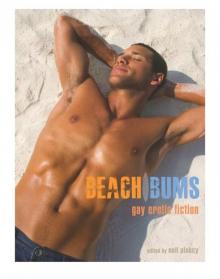 Beach Bums
Beach Bums Sexy Sailors
Sexy Sailors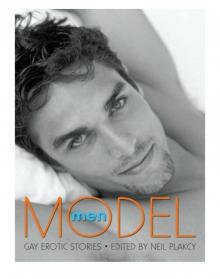 Model Men
Model Men Love on the Web
Love on the Web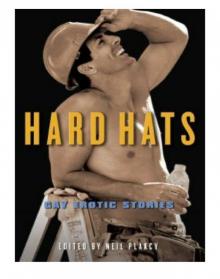 Hard Hats
Hard Hats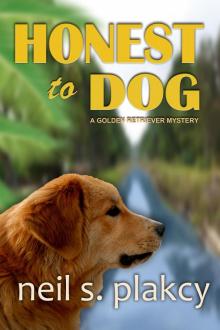 Honest to Dog
Honest to Dog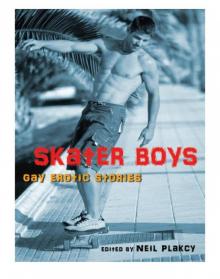 Skater Boys
Skater Boys Beach Bums_Gay Erotic Fiction
Beach Bums_Gay Erotic Fiction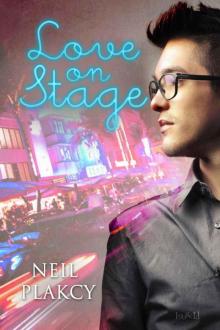 Love on Stage
Love on Stage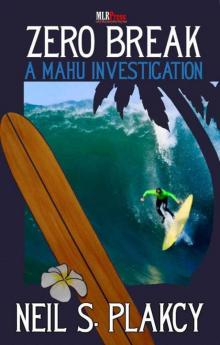 Zero Break
Zero Break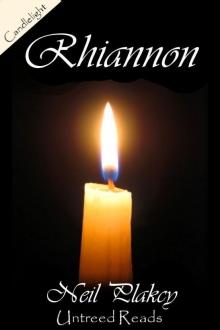 Rhiannon
Rhiannon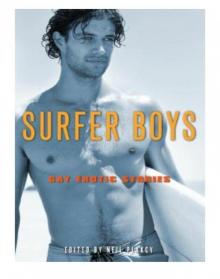 Surfer Boys
Surfer Boys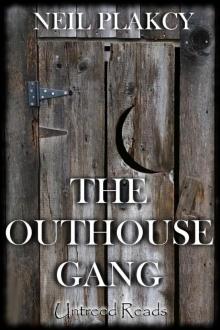 The Outhouse Gang
The Outhouse Gang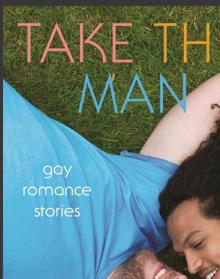 Take This Man
Take This Man Take This Man_Gay Romance Stories
Take This Man_Gay Romance Stories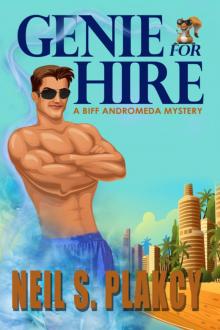 Genie for Hire
Genie for Hire